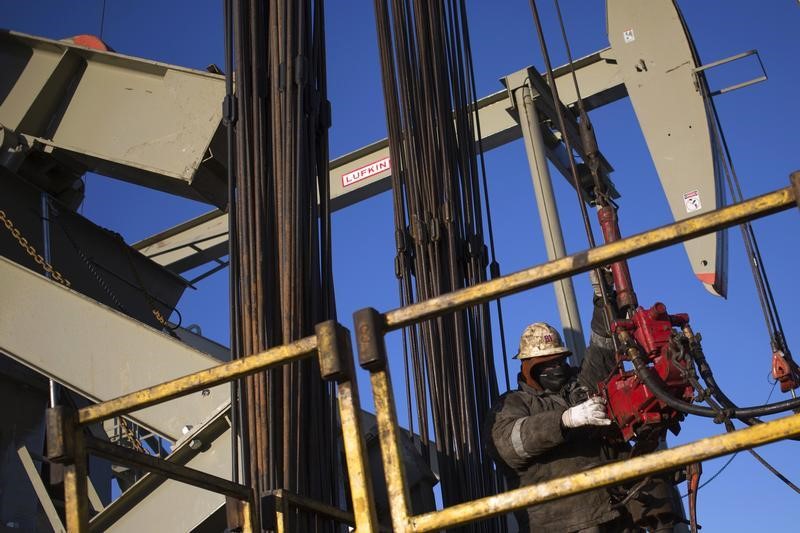* U.S.-China trade war stokes concerns over global growth
* Traders look to U.S. inventory data (Updates with settlement prices, adds move to bear market)
By Jessica Resnick-Ault
NEW YORK, Aug 6 (Reuters) - Oil prices fell more than 1% on Tuesday, with Brent crude settling near seven-month lows below $60 a barrel as trade tensions between the U.S. and China intensified worries about weakening global demand.
During the session, Brent traded at a low of $58.81 a barrel, down more than 22% from its peak in April. That decline puts the global benchmark in "bear market" territory.
Brent prices have lost more than 9% in the past week, with U.S. President Donald Trump vowing to impose new tariffs on Chinese imports and Beijing making further moves against U.S. agricultural cargoes.
The United States also responded to a decline in China's yuan on Monday by branding China a currency manipulator. Trump on Tuesday dismissed concerns over a protracted trade war with China, as Beijing warned that Washington's decision the day before would lead to chaos in financial markets. benchmark Brent futures LCOc1 fell 87 cents, or 1.45%, to settle at $58.94 a barrel.
West Texas Intermediate crude CLc1 futures were down $1.06, or 1.94%, at $53.63 a barrel.
"As far as the oil market is concerned, there are two key questions: 1) Why should China carry on buying U.S. crude oil? and 2) Why should China continue to adhere to the U.S. sanctions when it comes to buying Iranian oil?" Commerzbank (DE:CBKG) analyst Carsten Fritsch said in a note.
Global equities hit a two-month low .MIWD00000PUS and Brent fell more than 3% on Monday as traders worried the dispute between the world's two biggest oil buyers would dent demand, helping to prompt Tuesday's short-covering.
"It's difficult for oil to hold (up) when you have such moves in equities," Petromatrix analyst Olivier Jakob said.
Oil prices found little encouragement as the U.S. government forecast that growth in the Permian basin and other shale formations would largely offset production losses from the Gulf of Mexico due to Hurricane Barry. EIA/M
Crude could still find some support after the market settles on Tuesday, with a Reuters poll showing U.S. crude oil inventories were expected to have fallen for an eighth consecutive week. API/S
The American Petroleum Institute is set to release its weekly inventory data at 4:30 p.m. EDT (2030 GMT), with official government numbers to follow on Wednesday.
On the supply side, Iran has threatened to block all energy exports out of the Strait of Hormuz, through which a fifth of global oil traffic passes, if it is unable to sell oil as promised by a 2015 nuclear deal in exchange for curbing uranium enrichment. on Monday joined the United States in a maritime security mission in the Gulf to protect merchant vessels after Iran seized a British-flagged vessel.
